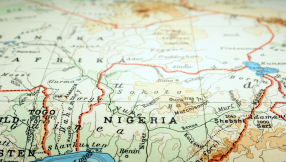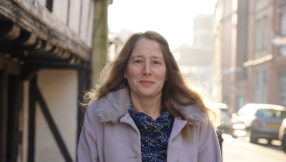The death toll in the Idlib province of northern Syria has risen to at least 70 after victims were exposed to a toxic gas that survivors said was dropped from warplanes, as a major diplomatic row grew over the carnage.
A further 100 people, at least, were being treated in hospitals in the province where the strike took place at dawn yesterday. Several dozen others, some in critical condition, were transferred to Turkey.
Condemnation is growing as the US, UK and the EU blamed the Syrian government for the deadly incident, hours before the start of a donor conference on Syria was due to begin in Brussels.
Donald Trump denounced it as a 'heinous' act that 'cannot be ignored by the civilised world'.
The Prime Minister, Theresa May said she was appalled by reports of the attack and called for an investigation by the Organisation for the Prohibition of Chemical Weapons.
'I'm very clear that there can be no future for Assad in a stable Syria which is representative of all the Syrian people and I call on all the third parties involved to ensure that we have a transition away from Assad,' she said. 'We cannot allow this suffering to continue.'
The UK-based monitoring group the Syrian Observatory for Human Rights put the latest death toll today in Khan Sheikhoun at 72, including 20 children.
The Syrian military said it 'categorically denied' responsibility, while Russia, which has heavily backed the Syrian regime, said its planes were not operating near Idlib.
Early this morning, the Russian defence ministry claimed that a Syrian airstrike had hit a 'terrorist warehouse' containing an arsenal of 'toxic substances' destined for fighters in Iraq.
But Hamish de Bretton Gordon, director of Doctors Under Fire and former commanding officer of the UK Chemical, Biological, Radiological and Nuclear (CBRN) Regiment, said this claim was 'completely untrue' and 'fanciful'.
He told BBC Radio 4's Today programme: 'It's very clear it's a sarin attack. The view that it's an al-Qaida or rebel stockpile of sarin that's been blown up in an explosion, I think is completely unsustainable and completely untrue.'
Hours after the attack, a hospital treating the injured was also hit.
Photographs and videos taken at the scene and in evacuation areas nearby showed rows of lifeless children, some with foam visible near their mouths. Save the Children said that at least 11 children were among the casualties.
The operations chief of the UN-led team that supervised the removal of Syria's sarin stockpiles following the gas attack on the rebel-held Ghouta area of Damascus four years ago, Jerry Smith, said: 'This absolutely reeks of 2013 all over again.'
In that attack, more than 1,300 people were killed.
The UN said the perpetrators probably had access to the stockpile of sarin held by the Syrian military at the time.
Tuesday's attack struck in Khan Sheikhun, where there are thousands of refugees from the nearby province of Hama who have fled recent fighting in the war-torn country.
'In this most recent attack, dozens of children suffocated to death while they slept,' said Ahmad Tarakji, the head of the Syrian American Medical Society (Sams). 'This should strike at the very core of our humanity. How much longer will the world fail to respond to these heinous crimes?'
Boris Johnson, the Foreign Secretary said: 'I am horrified by the reports of an attack near Idlib in Syria. The reports we are receiving strongly suggest the use of chemical weapons. And although we cannot yet be certain about what has happened, this bears all the hallmarks of an attack by the regime which has repeatedly used chemical weapons.
'The UK condemns the use of chemical weapons wherever and by whomever they are used and we will continue to lead international efforts to hold perpetrators to account. We continue to support the work of the Organisation for the Prohibition of Chemical Weapons and will work closely with them as they seek to investigate this latest incident.
'If this is shown to be the work of the regime, it is further evidence of the atrocities perpetrated against the Syrian people over six years of appalling conflict.'
Commenting on news that the UK will provide £1bn in aid money for Syrian refugees and their host countries, Tim Livesey, Oxfam's Head of UK Policy, said: 'Oxfam welcomes the Prime Minister's pledge to provide significant additional support to help Syrians left homeless by years of violence, building on its strong track record of aid to Syria.
'The UK Government should also push harder to ensure civilians and local aid workers within Syria are better protected - and for more inclusive peace efforts to end the horrific bloodshed.
'We're calling on the UK Government to match its generous aid with a more generous welcome to vulnerable refugees, including those already in the UK who need to be reunited with family members.'













